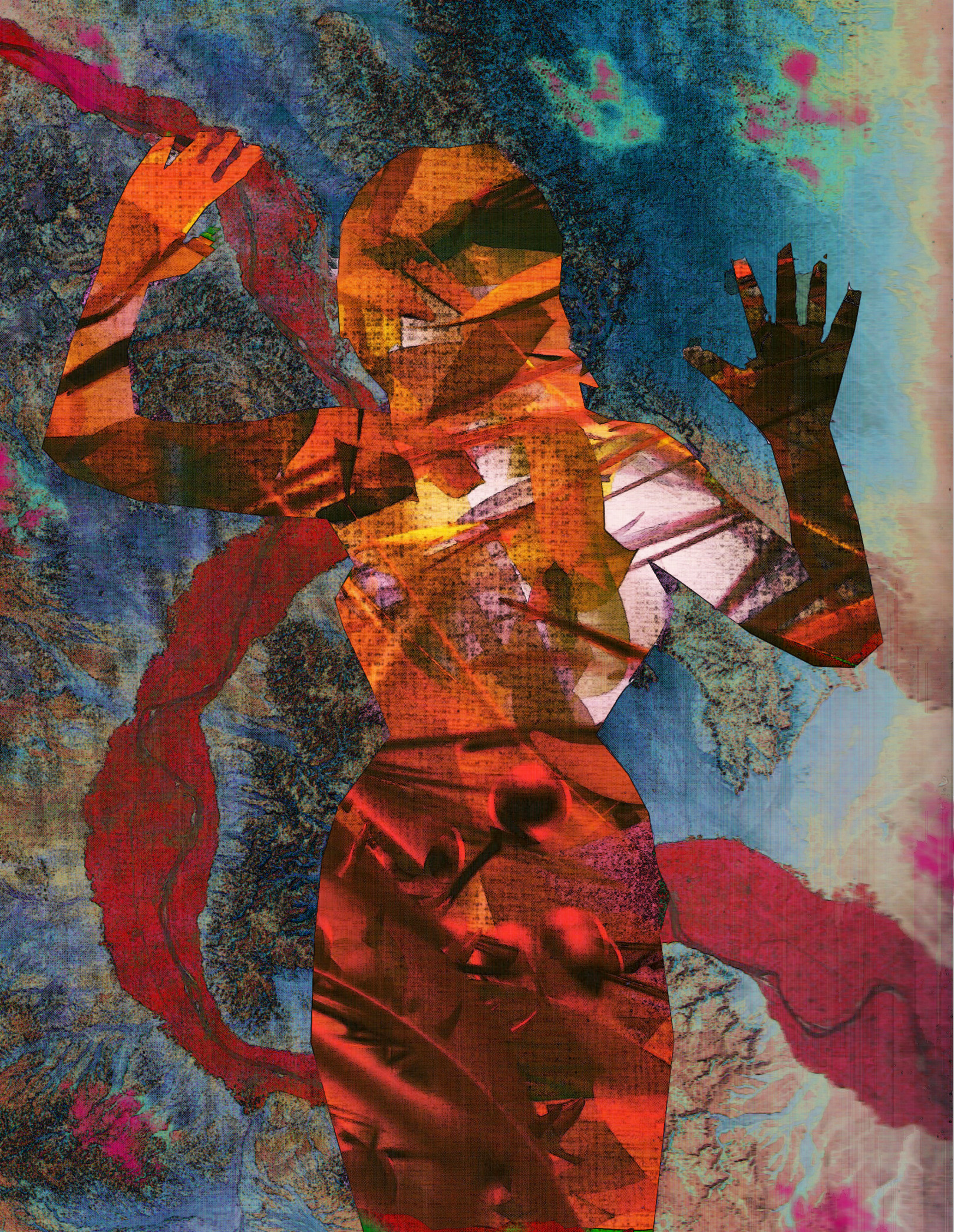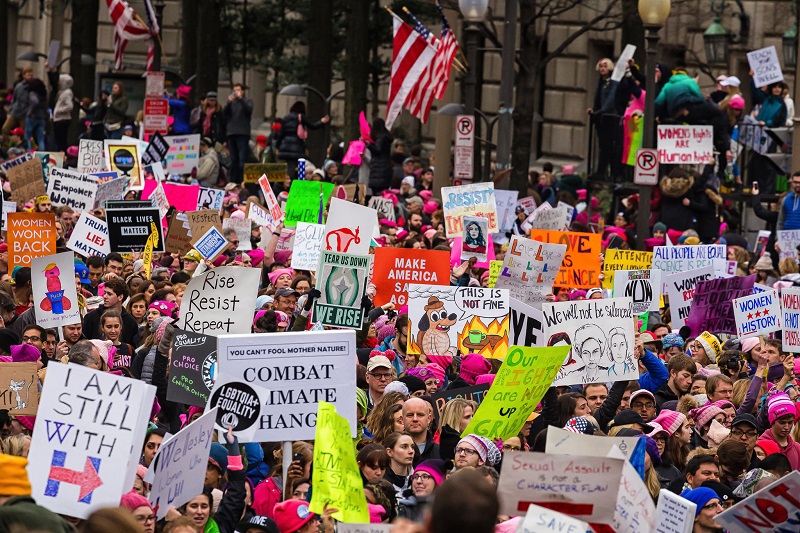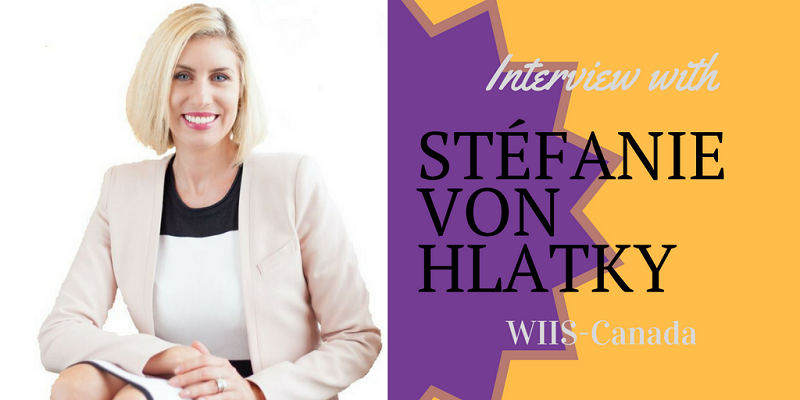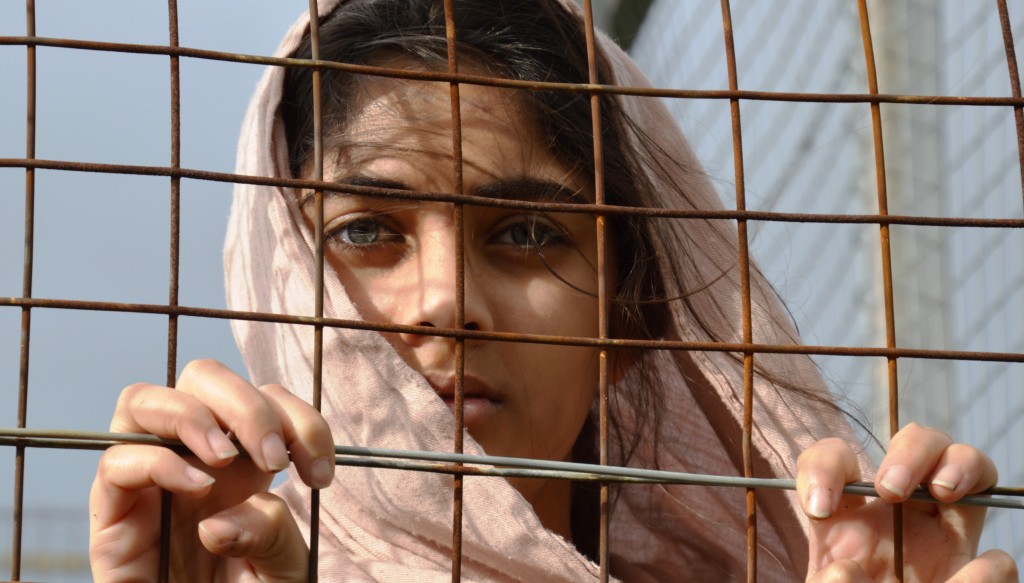Women are often associated with peace and reconciliation and men with war and violence. However, these stereotypes tend to overlook the role women play as perpetrators of violence and sexual abuses during wartime, since they are more commonly perceived as vulnerable civilians. Rebecca Solnit, in her work “Men Explain Things to Me”, highlighted that patriarchal behaviours such as discrimination, rape culture, insults, violence and exploitation subordinate women to fathers, brothers, husbands, boyfriends, bosses etc… Solnit said that the way masculinity is exemplified within the army, the political and educational settings, as well as at home and work creates the idea that boys inherit a natural dominance and therefore a disproportionate degree of power later in life. Solnit illustrated her ideas with narratives from different parts of the world showing how widespread patriarchal attitudes still are. Women are often placed in powerless situations and experience lower self esteem and self-confidence. According to Solnit this stems from the way men perceive women, often silencing their attempts at expression.
Women’s roles have been shaped by patriarchal power dynamics from the boardroom to the battlefield. They are still a minority within peace talks even though they participate in war as do men. This article suggests that women’s roles as agents of violence should be acknowledged and further examined while highlighting some examples of conflicts and cases in which women were both victims and perpetrators. This is often a consequence of physical abuse, abduction during wartime, or forced participation in militia groups.
Assumptions about women’s role and agency
Within the international community, women are seen as vulnerable individuals who need to be protected in times of war. The UN Security Council Resolution 1325 requires parties in conflicts to prevent violence against women. It has come under criticism for not taking into account the diverse roles women play during conflicts. Men and women should be equally involved in planning legislative, political, and strategic actions in order to benefit equally. This is known as gender mainstreaming and the UN has neglected to consider it from a political perspective. Yet within the United Nations, a form of patriarchy persists whereby a version of masculinity that sees men as guardians of the ‘weaker sex’ remains prevalent. Defining women as caregivers and linking their role with children leads to a lack of recognition of women as agents of change, with their own political and economic capabilities.
The 2019 UN SCR resolution 2467 appears to be a mere update of previous decisions on women, peace and security. Even though the resolution “encourages Member States, with the assistance of the Secretary-General and relevant United Nations entities, to ensure the integration of gender analysis and training into national disarmament, demobilization and reintegration processes, including ensuring that women formerly associated with armed groups, as well as ex-combatants, are able to access trauma services, re-socialization and reintegration initiatives; […]”, it fails to include women in the conflict resolution process. Excluding them from such an important step will lead to a skewed peace resolution and reconciliation process. It neglects to account for their involvement in war, building the Disarmament, Demobilization and Reintegration (DDR) programs upon a limited vision of gender roles.
Philosopher Janet Radcliffe Richards, in her essay Why the Pursuit of Peace is no Feminism, states that the divide between what is linked to men’s values as compared to women’s is detrimental to social cohesion as it polarises our society. Peace is not a feminist issue and even though feminists should aim for peace, opposing militarism should be every individual’s goal, not only that of feminists.
Cases in which women played violent roles The fact that women, either as civilians or soldiers, participated in murder and torture casts doubt on the assumption that women have a natural instinct to safeguard human life.
Researcher Dr. Lisa Sharlach explains that during the Rwandan Genocide, the Hutu females who killed and abused Tutsi civilians suffered from patriarchal militarism. However, she argues that what is more complex to analyze and understand is the role of women as both victims and perpetrators of crimes. Social structures are temporal processes, embedded in political norms which influence gender roles. During the conflict that opposed Hutu and Tutsi, Hutu women are said to have played a key role in plotting the genocide that killed the Tutsi population. Women who were complicit in the genocide called for the killings of Tutsi girls. Hutu nuns refused to harbor refugees, provided lists of names, and in some cases even killed Tutsi themselves.
Violence carried out by women in Rwanda was not an anomaly. Following the eleven-year conflict in Sierra Leone, researcher and professor Dara Kay Cohen conducted interviews with ex-combatants between 2006 and 2008. These interviews revealed that women are able to use violence both in times of peace and war. Women can be as capable of violence as men. One interview explained how women were put on the front lines when besieging villages because they were often the most ferocious fighters. Women fighting alongside men tended to reproduce their behavior, and the higher the number of women in groups, the greater the number of rapes perpetrated. Most women entering the Revolutionary United Front (RUF) were raped upon joining, and the RUF, who committed the majority of civilian rapes, relied on women to find potential victims and to keep them under control. Cohen argues that rape was used as a tool of coercion to create cohesion among the RUF. Women soldiers forced into committing violence against civilians believed that having such a role would protect them from sexual abuses and violence.
Artist, writer, and curator Coco Fusco, in her work A Field Guide for Female Interrogators, states that war revolves around “the exploitation of bodies and minds for financial gain, sexual power, and the censure of our unique capacity as human being to engage in abstract thought.” War spurs people into acting against their self-interest, against their ideals and their values. Women are willing to take part in war when it benefits them, and today more American women are involved in conflicts than at any previous time in history, specifically in key influential positions.
Moreover, US high-ranking female intelligence officers in Iraq and in Afghanistan encouraged the use of coercion and torture. The Pentagon authorized the use of sexual tactics during interrogations by “torture chicks” who were sent to provoke and seduce Muslim detainees at Guantanamo. The use of women as sexual bait was organized as part of a program. Interrogators were lectured about the Arab mindset and were told that sexually, Muslim men were weaker than Westerners. Hierarchical culture based on obedience and submissiveness to authority, lack of supervision and feelings of frustration and fear served to intensify the use of torture by American soldiers. Male officers used women as tools to torture detainees, seeing women as subservient and easily manipulated.
Benedetta Faedi, in her work From Violence Against Women to Women’s Violence in Haiti, explored the involvement of Haitian women in armed communities to determine whether this violence served as a coping mechanism to survive gendered oppression directed against them or as an intentional decision. As a result of 125 interviews conducted between 2007 and 2008, Faedi stated that because of extreme poverty, a lack of government accountability, and a high level of unemployment, women believe that they have no other choice but to engage in armed factions. In a place without a governmental safety net, gangs often provide food, protection, resources, and financial support for funerals. Due to economic insecurity, women have even been known to pay gangs to rape other women. Older women with children find themselves powerless before the social inequities and are often in competition with other women’s business to be able to feed their families. For younger women, prospective marriage opportunities are a way to escape their wretched living conditions contingent upon virginity. Encouraging the rape of other women increases their opportunities. Women who are raped are often mocked by their family, considered un-marriageable, and therefore are excluded from their community. Entering armed factions is a way of being accepted into a group, of achieving social recognition, of gaining self-confidence and of vindicating past trauma.
Strengthening women’s agency in wartime
The roles that women play in wartime have still not been thoroughly acknowledged by the international community and more needs to be done to increase women’s empowerment and self-determination.
During a 2019 session on Ending Sexual and Gender-Based Violence in Humanitarian Crises at UN Headquarters in Geneva, Ambassador of Somalia, Fatima Abdullah Mohammed stated that “the Somalian government is taking ownership to deliver a zero tolerance to [Gender Based Violence] GBV through the development of national strategies done with the participation of all stakeholders including survivors and key ministries.”
In conflict-prone countries, systems to hold perpetrators accountable must be implemented and the needs of survivors met. Donors should directly fund local organizations, and this should go along with the implementation of a locally-based systems of transitional justice. Women, men, and children survivors, as well as the perpetrators, should be included in the political process. This would be an important first step in conflict resolution and hopefully enable the beginning of a reconciliation process.
Featured Image: “Trapped” by Joel Ormsby, via Flickr. Licensed under CC BY-NC 2.0.
Disclaimer: Any views or opinions expressed in articles are solely those of the authors
and do not necessarily represent the views of the NATO Association of Canada.




